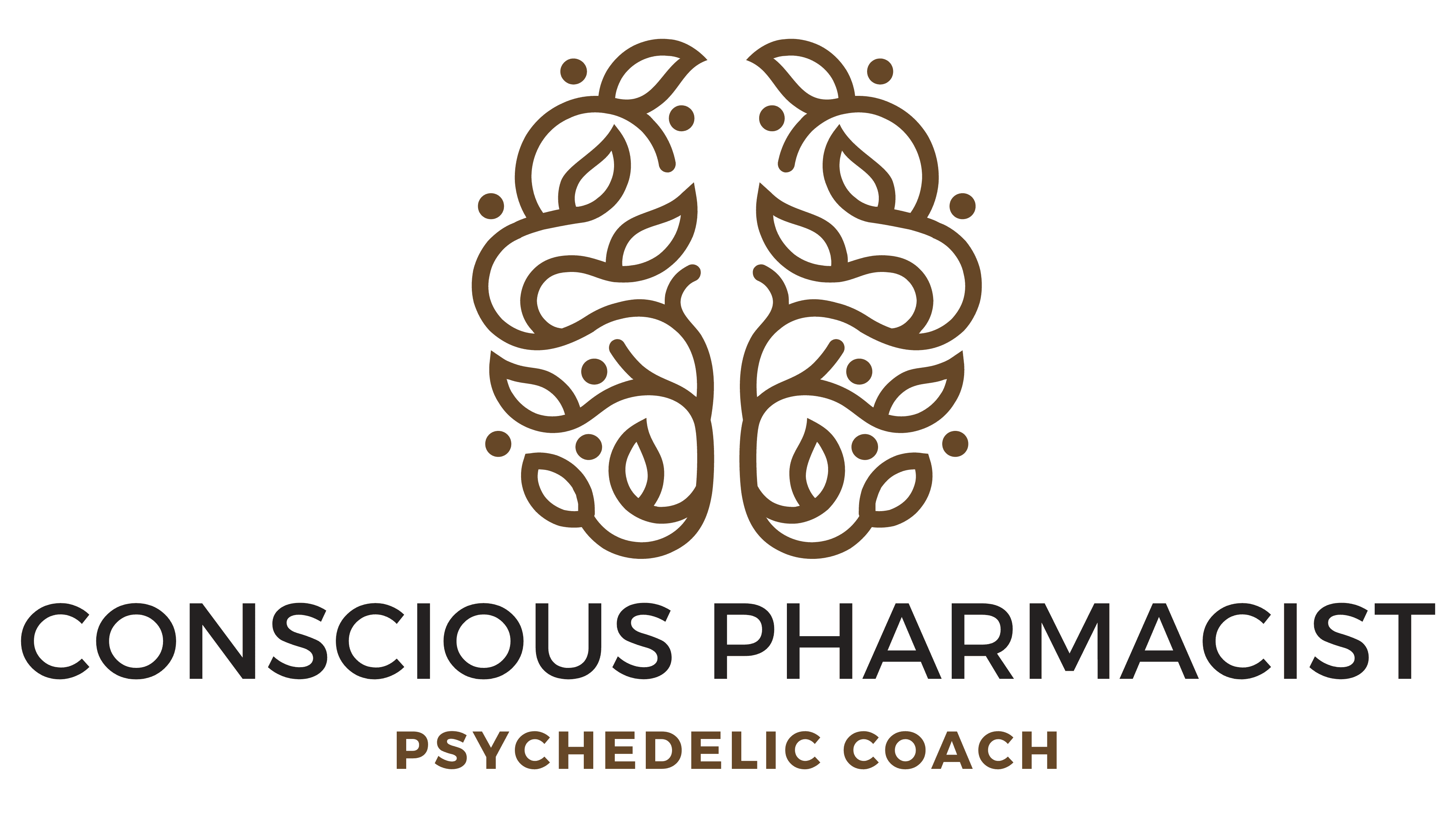Psilocybin, the active ingredient in magic mushrooms, has been used for thousands of years in spiritual and healing practices. Today, scientific researchers are rediscovering its potential to treat mental health conditions. Various scientific reviews highlight how psilocybin is making a comeback in modern medicine. Because of all the proven benefits, we succesfully use psilocybin as …
Psilocybin, the active ingredient in magic mushrooms, has been used for thousands of years in spiritual and healing practices. Today, scientific researchers are rediscovering its potential to treat mental health conditions. Various scientific reviews highlight how psilocybin is making a comeback in modern medicine.
Because of all the proven benefits, we succesfully use psilocybin as key ingredient for our psychedelic therapy programs and our psychedelic retreats.
Below we have described a summary of the evidence-based features and benefits of psilocybin.
What Is Psilocybin?
Psilocybin is a natural psychedelic compound found in certain mushrooms. It affects the brain by altering serotonin levels, which can influence mood, perception, and cognition. Historically, it was used in religious ceremonies and as a therapeutic agent. However, in 1970, psilocybin was classified as a Schedule 1 drug in the U.S., halting scientific research for many decades.
Psilocybin exerts its effects primarily through the 5-HT2A serotonin receptor, which plays a key role in mood regulation, perception, and cognition. Its ability to promote neuroplasticity – the brain’s capacity to form new connections – makes it uniquely suited to treat conditions rooted in entrenched thought patterns, emotional trauma, or impaired neural communication.
Renewed Interest in Psilocybin Research
In 2004, a pilot study at UCLA reignited interest in psilocybin’s therapeutic potential. Since then, scientists have made significant progress in understanding its effects and uses. Research now focuses on how psilocybin can help with neuropsychiatric conditions.
Read also: Groundbreaking Research on Psilocybin for Mental Health
How Can Psilocybin Help?
Studies suggest that psilocybin may be effective for:
- Tapering off medication
- Psilocybin, when used in controlled and supervised settings under medical guidance, could support individuals tapering off certain medications, especially antidepressants and anxiolytics.
Read also: How Can Psychedelics Help with Tapering off Medication?
- Depression
- Psilocybin has demonstrated significant effects in treating major depressive disorder (MDD) and treatment-resistant depression (TRD).
- Studies have found that a single or a few doses of psilocybin, often combined with psychotherapy, can lead to rapid and sustained symptom relief.
- Some studies show benefits lasting up to a year after treatment.
- How it works: Psilocybin promotes emotional breakthroughs and changes in brain connectivity, allowing patients to process their emotions and overcome negative thought patterns.
Read also: The Benefits of Psilocybin in Treating Depression
- Anxiety Disorders
- Effective for: Generalized anxiety disorder, social anxiety, and anxiety related to terminal illnesses.
- Can reduce anxiety symptoms in patients with life-threatening conditions.
- Mechanism: By inducing profound experiences and shifting perspectives, psilocybin helps individuals reframe fears and anxieties.
Read also: Psilocybin and Anxiety: An Evidence-Based Approach to Healing
- Obsessive-Compulsive Disorder (OCD)
- Scientific studies proof that psilocybin may help reduce compulsive behaviors and intrusive thoughts in OCD patients.
- Reason for effectiveness: Psilocybin’s impact on serotonin receptors can disrupt repetitive thought patterns and encourage flexibility in thinking.
Read also: How Psilocybin Can Help Cure Obsessive-Compulsive Disorder.
- Substance Use Disorders (addictions)
- Shows promise in treating alcohol and drugs use disorder.
- Potential for aiding smoking cessation and other substance dependencies.
- Psilocybin-assisted therapy significantly increases abstinence rates in people addicted to nicotine and alcohol.
- How it works: Psilocybin helps users confront the root causes of their addiction, provides motivation to change behaviors, and fosters a sense of interconnectedness that can reduce cravings.
Read also: Psilocybin Therapy for Addictions and Substance Use Disorders.
- End-of-Life Distress
- Psilocybin therapy has been shown to significantly improve the emotional wellbeing of terminally ill patients. It helps reduce fear, anxiety, sadness, and existential distress while enhancing feelings of peace and acceptance.
- How it works: Psilocybin induces a sense of interconnectedness and spiritual insight, easing the emotional challenges of facing mortality.
- Cluster Headaches
- Some individuals with cluster headaches, also known as “suicide headaches,” have reported significant relief after using psilocybin or related compounds.
- Mechanism: Psilocybin may alter blood flow in the brain and reduce the frequency or severity of these debilitating headaches.
- Brain Injury
- Scientific evidence and case reports show that psilocybin may support the brain’s natural healing processes in the case of with acquired brain injuries.
- Mechanism: By promoting neuroplasticity and reducing inflammation, psilocybin therapy holds great promise for improving cognitive and emotional recovery after injury.
Read also: Psilocybin and Brain Injury: A New Treatment Perspective.
- Post-Traumatic Stress Disorder (PTSD)
- Psilocybin-assisted therapy has proven to be effective for helping patients process traumatic memories and reduce PTSD symptoms.
- Why it works: Psilocybin facilitates emotional reconnection and neuroplasticity, making it easier for individuals to process and integrate traumatic experiences.
- Eating Disorders
- Psilocybin has shown potential for treating anorexia nervosa and binge-eating disorder.
- Why it helps: By addressing emotional trauma and encouraging a new relationship with the self, psilocybin may help patients overcome harmful eating patterns.
Read also: How Psilocybin Therapy Can Help Women with Anorexia Nervosa.
- ADHD
- The enhanced neuroplasticity thanks to psilocybin can help improve cognitive flexibility, focus, and the ability to manage impulsivity, which are often impaired in ADHD.
- By influencing dopamine activity, psilocybin may help improve attention, motivation, and reward processing, which are often challenges for individuals with ADHD.
- Many individuals with ADHD experience heightened anxiety, which can exacerbate symptoms. Psilocybin’s calming effects may help mitigate these issues, leading to better focus and emotional stability.
- Psilocybin-assisted therapy often leads to profound emotional insights and greater self-awareness. This improved emotional regulation could help individuals with ADHD manage impulsivity and frustration, enhancing interpersonal relationships and day-to-day functioning.
- Psilocybin is known to induce a state of mindfulness and present-moment awareness. The improved mindfulness has been shown to be effective for managing ADHD symptoms. Psilocybin could potentially act as a catalyst for adopting mindfulness practices.
Read also: The Benefits of Psilocybin and Microdosing for People with ADHD
- Chronic Pain
- Scientific evidence proofs that psilocybin may ease or even resolve chronic pain issues.
Read also: Microdosing Psilocybin: A New Approach to Chronic Pain?
- Alzheimer’s Disease
- Scientific evidence shows that psilocybin offers great potential to slow the disease and help ease symptoms of Alzheimer’s Disease.
Read also: Can psilocybin help cure or slow down Alzheimer’s Disease?
Why Is Psilocybin Different?
Unlike traditional medications, psilocybin works quickly and may have long-lasting effects after just one or two sessions. It also promotes new connections in the brain, helping patients break free from negative thought patterns.
Read also: The Science and Benefits of Psychedelics: Exploring Their Potential for Mental Health and Beyond
Challenges and Future Research
Despite its potential, psilocybin is still stigmatized due to its association with the counterculture movement of the 1960s. More research is needed to fully understand its benefits and ensure safe use. Scientists are now exploring how to integrate psilocybin into mainstream medicine.
Read also: Groundbreaking Research on Psilocybin for Mental Health.
Conclusion
Psilocybin offers hope for treating mental health conditions that are difficult to manage with current therapies. If you’re interested in learning more about psychedelic therapies, please visit our Conscious Pharmacist website for therapies, retreats and updates on this exciting field of medicine.
Do you have any questions, would you like book a psilocybin based Microdosing Coaching treatment, a Psychotropic Medication Tapering program, Individual Psychedelic Therapy or a Group Retreat or Individual Retreat? Please book a FREE consult HERE, or contact us via our contactform.
Read also:
- What is the Positive Impact of Conscious Pharmacist?
- The Best Psychedelic Assisted Therapy in Portugal.
- Microdosing with Psilocybin: How Small Doses and Coaching Therapy Work Best.
- Psilocybin and Bipolar Depression: A New Hope for Mood Stability.
- Unlocking Leadership Potential with Psilocybin Retreats.
- Study Shows Psilocybin Can Help People Drink Less Alcohol.
- Discover the Transformative Power of Psychedelic Retreats with Conscious Pharmacist in the Algarve, Portugal.
- Interview with Dr. Sara Ahmadi: The Power of Psychedelic Retreats.
- Transforming Mental Health: Conscious Pharmacist Brings Science-Backed Psychedelic Therapy & Retreats.
Author: Patrick W. Driessen
Sources: The Lancet, American Psychological Association, University Hospitals, National Library of Medicine, Cureus, Sage Journals, John Hopkins Medicine, CNN Health, ADF, PsyPost, JAMA Network






